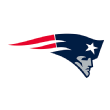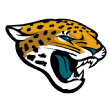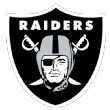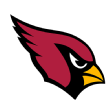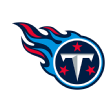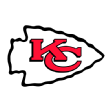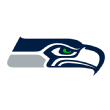Barnwell's 2019 NFL awards ballot: Picks for MVP, best rookies and more

With one week to go in the 2019 NFL season, I've pieced together my regular-season awards ballot. While I would typically wait for Week 17 to play out before making any proclamations, there really aren't many close races this year; the winners for most of the key awards are comfortably ahead of the competition, and the guys who could move on or off the ballot altogether are the third-placed players.
While someone like Miles Sanders could work his way ahead of Josh Jacobs on the Offensive Rookie of the Year ballot if Sanders excels and Jacobs sits out in Week 17, every player who won an award in this column would need something virtually unprecedented to happen in Week 17 to miss out on a nod. Let's start with the coaches and work our way toward the players:
Jump to a major award:
DROY | OROY | COY
DPOY | OPOY | MVP
Coach of the Year
3. Bill Belichick, New England Patriots
I was tempted to put Brian Flores here after he turned around a Dolphins team that looked destined for the gutter after starting 0-7. You can make a case for a half-dozen other coaches in the top three, and while I wouldn't fault anybody who put them into the mix, I had to leave out Sean McDermott, Kyle Shanahan and Matt LaFleur.
I've had Belichick atop my rankings here for most of 2019. I've laid out how absurd it is that he has pieced together one of the most incredible dynasties in the history of American sports and somehow has only three Coach of the Year trophies to show for it. If we're talking about the most valuable coach in football or the coach I would want if I was going to start a franchise in 2020, I'm picking Belichick. I'm not that big of a dummy.
Given his defensive track record, he has played a huge part in building one of the best defenses in NFL history this season. Belichick has tumbled ever so slightly down the rankings, instead, by virtue of what has happened on the other side of the ball. The Patriots' offense went to sleep for 10 weeks without Belichick or Josh McDaniels finding any answers.
Saturday's victory against the Bills finally showed some of the new looks the offense has desperately needed for months. Who would have ever expected the Patriots to line up in the pistol? More important, even without starting right tackle Marcus Cannon for most of the game, they did a solid job of protecting Tom Brady against one of the league's best defenses. The Bills didn't sack Brady once, and when they sent extra pressure at the future Hall of Famer, he went 9-of-11 for 119 yards and a touchdown. It was the first time he had posted a passer rating over 100 against the blitz in the middle of a game since Week 6.
I'm cautiously optimistic, but the Patriots rank 27th in win probability added on the offensive side of the ball since Week 4. This team has been carried by its defense for three months, and while Belichick has done an incredible job on that side of the ball, the offensive woes have been too obvious for me to give him first place here.
2. Sean Payton, New Orleans Saints
Has anything really slowed down the Saints this season? At different points, they've lost their Hall of Fame quarterback, their superstar cornerback, their most dynamic running back and most of their offensive line. Just seven Saints have started all 15 games. Teams should crumble under that sort of injury luck. The Rams, for one, haven't been able to overcome a much less impactful run of injuries.
The Saints somehow keep chugging along. I have to give a lot of the credit for that to Payton, who has managed to get this team to somehow thrive in spite of the injuries. They should have fallen off with Teddy Bridgewater replacing Drew Brees, and yet they went 5-0. They've allowed a passer rating of 96.0 with Marshon Lattimore on the field, but with their star cornerback injured or on the sidelines, they have posted a passer rating of 74.7, an improvement of more than 21 points. On Sunday, an offensive line missing both its starting guards was creating enormous holes for Alvin Kamara, who finally broke through the force field keeping the Saints running back from the end zone.
Payton has coaxed a better season out of the 2019 Saints than he did from last season's unit by DVOA, where the Saints are neck and neck with the 49ers and well ahead of everybody else. And if there were any doubters left who chalked up Payton's success to mere Brees-adjacency, the five-game winning streak with Bridgewater answered those concerns. This might end up as Brees' final season, but it's not going to be the last time Payton earns a home playoff game with the Saints.
1. John Harbaugh, Baltimore Ravens
We might not remember just how irrelevant the Ravens were through the first half of 2018. After winning their Super Bowl following the 2012 season and signing Joe Flacco to a disastrous contract extension, the Ravens spent the next 5 years treading water. Harbaugh was 44-45 with one playoff appearance over that time. Owner Steve Bisciotti admitted that he considered firing Harbaugh after the 2017 season. Nobody would have been surprised if the Ravens fired him after another seemingly lost season in 2018.
Since then, with Lamar Jackson taking over as starting quarterback, the Ravens are 19-3. Harbaugh admittedly had to be pushed into the Jackson era -- Harbaugh insisted that he had no plans to bench Flacco during the bye before a hip injury to the former Super Bowl MVP forced his hand -- but the Ravens have been the best team in football from that day forward.
Harbaugh deserves a ton of credit for being flexible enough to mold the offense around Jackson's strengths. The Ravens promoted Greg Roman to offensive coordinator this offseason and fully committed to the league's most unconventional offense. You don't need me to tell you it worked. Jackson is going to win MVP, and the Ravens are the top seed in the AFC playoffs.
When it comes to 2019, though, I'm honestly more impressed with how the Ravens have handled adversity on defense. Of the 11 players on defense who suited up for more than 50% of snaps last season, the Ravens lost five to free agency, including influential leaders C.J. Mosley and Eric Weddle. Holdovers Tavon Young and Tony Jefferson each suffered season-ending injuries. The team's most notable addition was free safety Earl Thomas, who got in a "heated discussion" after a 40-25 loss to the Browns dropped the Ravens to 2-2.
Baltimore hasn't lost since. The Ravens added Marcus Peters shortly after their slow start and have been one of the league's best defenses since. Both coordinators deserve credit, but Harbaugh has managed to repeatedly develop young talent despite losing key contributors to free agency on a seemingly annual basis. Now, with the the league's new superstar quarterback the focal point of the franchise, we're getting a reminder of just what Harbaugh can do. No team is as well-rounded and consistently effective on both sides of the ball heading into the postseason as Harbaugh's Ravens.
Executive of the Year
A note here: I'm considering these executives strictly in the context of what they've done since the 2019 offseason began Feb. 4. While someone like Chris Godwin has taken a step forward this season and emerged as a dominant player, I wouldn't give Bucs general manager Jason Licht credit in 2019 for a draft pick he made two years ago. This award considers decisions and player additions/subtractions made since the Super Bowl.
3. John Lynch, San Francisco 49ers
The rebuild finally came together in 2019. I'm not giving Lynch credit here for the decisions he made in the past, though it's possible that he made one of the best draft picks of the past decade by taking George Kittle with the 146th pick in 2017. Kittle, somehow the ninth tight end taken in that class, might be one of the best players in football independent of position.
Lynch nailed his 2019 draft, and while using the second overall pick on Nick Bosa might seem like an obvious move, it has transformed the 49ers' defense. Even beyond Bosa, Lynch's draft unearthed a handful of useful players. Wide receiver Deebo Samuel has jumped up the depth chart and become almost an every-down player. Sixth-round tackle Justin Skule did a creditable job filling in for Joe Staley when most rookie first-rounders struggle at left tackle during their debut campaigns. Even 220-pound punter Mitch Wishnowsky has been part of the league's sixth-best punting unit.
The moves Lynch made to acquire veterans haven't been quite as successful, which is why he's third here. Pass-rusher Dee Ford has been sidelined by injuries and hasn't played more than 50% of the snaps in a single game since Week 1. Tevin Coleman has arguably been the team's third-best running back. Linebacker Kwon Alexander was off to a great start before tearing his pectoral muscle, playing in just eight games. The Niners gave Robbie Gould a multiyear extension, but the veteran has been the league's fifth-worst kicker on scoring plays this season. Wide receiver Emmanuel Sanders, acquired in a trade, has impressed when healthy, though, and Lynch hasn't needed to make many other midseason additions. I'd rank Lynch higher if I was looking at the broader rebuild given how many 49ers have taken leaps this season, but he has still done a very good job in 2019.
2. Eric DeCosta, Baltimore Ravens
Technically a rookie general manager, DeCosta officially took the reins from legendary Ravens executive Ozzie Newsome in January 2019. While the Ravens were excited about Lamar Jackson after his hot second half, DeCosta still had to deal with $16 million in dead money from the Flacco deal and a series of tough decisions to make on the defensive side of the ball.
He got just about everything right. What was most impressive, especially for a first-time general manager, is that he didn't panic. When the Jets blew away the Ravens and gave C.J. Mosley the sort of offer that dramatically shifted the financial landscape at inside linebacker, Baltimore walked away. (The Ravens also let Za'Darius Smith leave for upper-echelon pass-rusher money with the Packers, although he's lived up to that price tag in 2019.) Earl Thomas wasn't necessarily on the radar as a likely Ravens addition, but when Eric Weddle left and the top end of the safety market signed mammoth deals, the Ravens pivoted and went for a future Hall of Famer.
I didn't like some of the decisions the Ravens made on offense at the time, but they've virtually all turned out to be logical and effective. Most teams wouldn't get enough out of tight end Nick Boyle as a blocker to give him a three-year, $18 million deal, but the Ravens are the best possible fit for his skills. Likewise, Mark Ingram raises a ton of red flags as a power runner turning 30, but he has been the perfect counterpoint to teams that want to load up with speed at the second level to try to stop Jackson. First-round receiver Marquise Brown hasn't always been healthy, but when on the field, his speed has been a constant threat to teams that cheat an extra defender down into the box.
The in-season trade for cornerback Marcus Peters will go down as one of the best deals in 2019. As one of the league's smartest franchises, the Ravens perennially don't sell out all of their draft picks or use all of their cap space, knowing that there are likely to be some unexpected options looming as cheap additions later in free agency, over the summer or as a midseason pickup. Peters has played like a superstar since leaving Los Angeles, and the Ravens got him for a fifth-round pick and a backup linebacker. They'll either keep him around or net a third-round compensatory pick for him this offseason. Everything the Ravens do with their personnel fits a logical puzzle. It shouldn't be the case, but there are few teams in the NFL that can say the same about their decisions.
1. Brandon Beane, Buffalo Bills
What the Bills have done over the past three years is almost unprecedented. After firing Rex Ryan, they lined up a 53-man roster on Jan. 1, 2017, for a 30-10 loss to the Jets. Less than three years later, just three players from that roster -- defenders Lorenzo Alexander, Jerry Hughes and Shaq Lawson -- remain part of the Bills organization.
Beane and coach Sean McDermott, who both came from Carolina, have fundamentally reshaped the Bills in their image, and they look more like those Panthers teams of old than the actual Panthers these days. They spent most of the first two years rebuilding the defense into one of the league's best units, which I'm not really considering for the purposes of this award as aforementioned. The major addition Beane made on defense this year was using a first-round pick on Houston tackle Ed Oliver. While defensive tackle wasn't necessarily a position of need, Oliver has flashed absolutely terrifying upside this season as part of a rotation.
The project this offseason was building an offensive infrastructure around second-year quarterback Josh Allen, and that has been a resounding success. After Oliver, the Bills used their next three draft picks on offensive players, and they're all starters. Cody Ford has split time with Ty Nsekhe and admittedly struggled a bit at right tackle, but the Bills have been able to get by with the Oklahoma product, which is more than you can say for a fair number of rookie tackles.
Running back Devin Singletary helped spark a victory in the opener against the Jets and has grown into the starting role as the season has gone on, taking 52 of 54 snaps during Saturday's loss to the Pats. And tight end Dawson Knox was expected to be buried on the depth chart behind veterans Tyler Kroft and Lee Smith, but he took his opportunity when Kroft missed camp with an injury. The Ole Miss product is still developing as a receiver and has made some unfortunate drops, but he's a legitimate NFL athlete and blocker with more upside than most teams saw heading into the draft. It's unrealistic to compare him to Kittle, but Knox was undervalued in the same way that Kittle was by virtue of their lack of receiving production in college.
What has been far more impressive, though, is how many veterans the Bills have added and successfully integrated into their offense. Signing John Brown and Cole Beasley to take over as the two primary wideouts for Allen raised major questions, but they've both elevated their games and played at a higher level. Brown has been a legitimate No. 1 receiver on a three-year, $27 million deal, which is nearly half of what Sammy Watkins got in free agency. Brown has been the better player.
Beane has also turned around the offensive line. The Bills surrounded holdover left tackle Dion Dawkins with a whole new line by drafting Ford and signing Quinton Spain, Jon Feliciano, Spencer Long and standout Chiefs center Mitch Morse. Feliciano has broken out in his first season as a starter and might have deserved more significant Pro Bowl consideration, while Morse has become Allen's best friend at the pivot.
The Bills aren't a finished product on offense, in part because their quarterback is still a work in progress. They rank 21st in offensive DVOA, and after Allen's wildly impressive game against the Cowboys, he has competed 47.8% of his passes and averaged 5.5 yards per attempt in three games against the excellent, playoff-caliber defenses of the Ravens, Steelers and Patriots. The best thing any team can do for their young quarterback is surround him with talent, though, and Beane has built an offense overnight. He's a worthy Executive of the Year pick.
Defensive Rookie of the Year
3. Devin Bush, ILB, Pittsburgh Steelers
The stat-stuffing that Bush exhibited during the first six weeks of the season has mostly faded away, with the 10th overall pick racking up one forced fumble, one quarterback knockdown and one pass defensed over the past 10 weeks. The Steelers have also reduced his snaps over the second half of the season; after playing just under 91% of the snaps through Pittsburgh's eighth game, he has been down closer to 70% over the next seven contests, with the team taking him off the field on most third downs.
There's still a really good football player here, though, and Bush should continue to grow around the likes of Minkah Fitzpatrick and T.J. Watt. His interception of Lamar Jackson is only that much more impressive now when you consider that the likely MVP has thrown one interception over the ensuing 10 games.
2. Josh Allen, DE, Jacksonville Jaguars
Allen's impact has flown under the radar amid the mess in Jacksonville, but the Jags' decision to supplement their biggest point of strength by using the No. 7 overall pick on a defensive lineman has to be considered a success. Allen leads all rookies in sacks (10) and is second behind Nick Bosa in quarterback knockdowns (21).
Watching Allen on tape shows more coverage sacks than you might typically hope for from a 10-sack campaign, but it's also clear that he's a problem for opposing offensive lines. Watching this sack against the Bengals, you can almost see the panic in Bobby Hart as he's isolated one-on-one against the rookie. Andy Dalton has no choice but to get his hands up for protection as Allen takes him down. I'm hoping Allen is a supplement to Yannick Ngakoue and not a long-term replacement for the pending free agent, because Allen and Ngakoue could be the best pass-rushing duo in football as early as next season.
1. Nick Bosa, DE, San Francisco 49ers
Bosa might be pretty close to a unanimous pick this season. While the Defensive Player of the Year hype has slowed down with him picking up only two sacks after Week 8, he's still just ahead of Allen as the best defensive rookie in the league.
Arik Armstead is having a career season playing alongside Bosa and DeForest Buckner, but it's telling that Bosa has been far more productive alongside fellow pass-rusher Dee Ford, who has missed most of the second half of the season with a hamstring injury. Bosa has seven sacks and 28 initial pressures on 164 snaps with Ford on the field, but he has just two sacks and 52 initial pressures on 508 snaps without the former Chiefs edge rusher in the lineup.
Naturally, teams are paying more attention to Bosa without Ford around, even given the embarrassment of riches elsewhere on this line. Bosa is still going to get his and make an impact. His sack against the Falcons was typical for what he has seen during the second half. Atlanta brings Russell Gage in motion and has him chip Bosa at the snap to prevent the second overall pick from getting around left tackle Jake Matthews. Bosa initially gets blocked by Matthews, but he's able to disengage and trip Matt Ryan as the quarterback steps up in the pocket. His second-half numbers are down, but much like Bush, he's hardly a flash in the pan.
Offensive Rookie of the Year
3. Josh Jacobs, RB, Oakland Raiders
Running backs who don't do much in the passing game are often overrated. You have to be efficient and attract real volume to stand out as an exception, and Jacobs looks like he might be one of those backs. The only runner drafted in the first round in 2019, Jacobs ran for two touchdowns in the opener and has only been slowed by a shoulder injury.
He ranks 10th among backs in yards per carry and 15th in success rate. Injuries have cost him two games, but Jacobs was averaging 88.5 rushing yards per contest, the fourth most in football. Fumbles are also often a problem for rookie backs, but he has one fumble on 262 touches.
If Jacobs were more of a receiver, he would be my Rookie of the Year. He racked up only 166 yards and eight first downs on 27 targets, with Pro Football Reference charting him with three drops. Jacobs is still evolving as a player -- he had 242 carries in his rookie year after touching the ball 251 times in three seasons at Alabama -- and I wouldn't bet against him developing his receiving skills to be starter caliber with more reps. There's no sense in relitigating the Khalil Mack trade for the Raiders, but the guy the Raiders chose with Chicago's first-round pick looks like a solid player.
2. Kyler Murray, QB, Arizona Cardinals
As is often the case, many of the pre-draft conversations we had about the top-drafted quarterback turned out to be mostly irrelevant. Murray's size hasn't mattered during his rookie campaign, as the only injury the first overall pick suffered was a pulled hamstring last Sunday.
The Cardinals have emphasized low-risk passes for Murray, likely a product of concerns about their offensive line and a lack of receiving weapons when Christian Kirk hasn't been available, leaving Larry Fitzgerald as the only competent wideout. Murray's average pass has traveled 6.5 yards in the air, ranking 28th out of 32 starting quarterbacks. He has thrown a league-high 81 screen passes, 12 more than anybody else. Screens can be a crutch for young quarterbacks, but Murray has been effective when the Cardinals have asked him to be a more traditional passer. Strip out the screens and he ranks 18th in completion percentage and 19th in yards per attempt.
Of course, he's already a valuable runner, racking up 544 yards, four touchdowns and 27 first downs on 91 carries. He's fourth among quarterbacks in rushing EPA behind Lamar Jackson, Deshaun Watsonand Josh Allen, most of which has come on designed runs as part of Arizona's rushing attack, which is second in the league in DVOA. Just over one-third of Murray's rushing yardage has come on scrambles, which is a sign of how disciplined he has been in trying to create plays as a passer in the pocket. Murray needs an infusion of talent at receiver in 2020, especially if Fitzgerald leaves, but there's something here.
1. A.J. Brown, WR, Tennessee Titans
The first time I got a glowing text from somebody in the league about Brown was after his 47-yard catch in the opening quarter of Week 1 against the Browns. Over the remainder of 2019, there haven't been more than two or three players who inspired more messages in my direction than the Titans standout, and most of them came as a result of someone watching tape in midweek and gasping at him from the All-22 footage. This is a player whom a half-dozen teams in the NFL already wish they had taken. Their mistakes are the Titans' gain.
Brown looked like a guy who belonged on an NFL field from the first quarter of Week 1 and hasn't let up. For a receiver who wasn't supposed to have elite-caliber speed coming into the league, his stat line is something out of the DeSean Jackson playbook. With one week to go, he's averaging 19.3 yards per catch on his 48 receptions. That's the second-highest mark for any rookie receiver with 40 catches or more in the year in which he was drafted, and almost everybody who created that many big plays as a rookie ended up producing a meaningful NFL career. There are players such as Randy Moss and Jerry Rice in the top 10 of that group.
Yes, it's premature to make those comparisons. What we've seen from Brown as a natural route runner and devastating receiver after the catch, though, has been undeniably fun to watch. His 91-yard touchdown against the Raiders was truly special. Brown wins repeatedly throughout the play; he blows by Daryl Worley off the line of scrimmage, slows down to catch a pass Ryan Tannehill is forced to underthrow because of pressure, brings in the completion, sheds Worley's tackle attempt and then simply glides away from the trailing Erik Harris for an easy score. Brown should top 1,000 yards from scrimmage in the season finale, and if he can get a full season with Tannehill in 2020, he should still be able to hit another gear in terms of volume. What a fun player.
Defensive Player of the Year
3. Minkah Fitzpatrick, S, Pittsburgh Steelers
Here's the case for Fitzpatrick as one of the most valuable defensive players in football:
Those numbers are a little misleading because the "without" numbers are strictly from the first two weeks of the season, but the Steelers have been the best pass defense in football since Fitzpatrick arrived in Week 3. The biggest argument for conceivably downgrading Fitzpatrick is that he was burned horribly by Ravens receiver Marquise Brown as a Dolphins player in Week 1 before being benched and then traded.
Fitzpatrick has missed a total of three defensive snaps since arriving in Pittsburgh, where he has picked off five passes and recovered two fumbles. Some of those interceptions were the product of being in the right place at the right time, but there's no doubt that he has solved what had been a wildly frustrating series of safety problems for the Steelers post-Troy Polamalu. Even if Pittsburgh does miss out on the postseason, Fitzpatrick is a big reason they were in playoff contention during a season in which they got replacement-level quarterback play.
2. Aaron Donald, DT, Los Angeles Rams
Remember him? Donald isn't going to attract serious DPOY consideration because the Rams have been ordinary this season and his sack numbers have dropped from last season's 20.5, but this is still the best interior disruptor in football by a comfortable margin. With 12.5 sacks, he has three more than any other defensive tackle. He leads the league at all positions with 20 tackles for loss, 10 each against the run and the pass.
A closer look at the numbers reveals just how much Donald has kept a struggling Rams defense afloat. Opposing quarterbacks average 6.6 yards per attempt, post a passer rating of 84.0 and take sacks on 8.9% of dropbacks with Donald on the field, but on 82 pass plays without him on the field, those same passers average 9.2 yards per attempt with a passer rating of 106.1 and a sack rate of 4.9%.
Advanced metrics also detail Donald's dominance. According to ESPN's new pass rush win rate metric, Donald wins on 24.2% of his pass-rushing attempts, with Grady Jarrett (21.6%) the only other tackle topping 20%. Donald has been double-teamed on 285 plays this season, more than any other defender. He has the fifth-best win rate in the league when teams double-team him, and when teams are foolish enough to try to block Donald with one lineman, he wins on 39.6% of his pass-rushing attempts. To put that in context, the only other defender above 32.5% is the Cowboys' Robert Quinn. Donald hasn't been the most productive defender in the league this season, but with respect to Chandler Jones and his 19 sacks, he's still the first player you would pick if you were building a defense.
1. Stephon Gilmore, CB, New England Patriots
You can count the number of times Gilmore has looked bad this season on one hand, with John Brown's 53-yard touchdown in Week 16 being the most notable. Week after week otherwise, Gilmore has been a plug-and-play solution for stopping whomever Bill Belichick wants to stop most on the other side of the ball. He is the most important player on one of the best defenses in NFL history.
While Belichick would frequently put his top cornerback on the other team's second-best receiver and then double-up the opposing team's best receiver in years past, Gilmore has been good enough to take the other team's No. 1 snap after snap. His ability to do that has allowed the Patriots to play more Cover Zero than ever before, which has helped propel their pass rush without a single dominant edge rusher on the roster.
In years past, the best cornerback in football was easier to avoid. Nnamdi Asomugha was dominant in Oakland, but because he stayed on one side of the field, smart teams were able to line up their No. 1 wideout on the other side and simply avoid him altogether. He would routinely see one or two targets per game. The Seahawks were able to convince teams to throw at Richard Sherman more frequently, but outside of rare exceptions, he stayed on his side of the field and didn't travel.
Gilmore travels with the No. 1 guy and attracts tons of targets. According to NFL Next Gen Stats, he has been the nearest defender in coverage for 86 targets this season, which is tied for the 10th most in football. He has allowed a passer rating of 29.6 on those targets, which is the second-best mark in the NFL for a cornerback with 200 or more coverage snaps, trailing Patriots teammate J.C. Jackson. Had opposing quarterbacks simply chosen to spike the ball into the ground in lieu of targeting Gilmore this season, they would have improved their passer rating by 10 points.
Offensive Player of the Year
It's silly to give the award for MVP to an offensive player without giving the award for Offensive Player of the Year to that same person, so I'm going to preface this accordingly. I'm treating this as the award for the best offensive player in football who isn't a quarterback.
3. George Kittle, TE, San Francisco 49ers
We underappreciated Rob Gronkowski during his brief career. I'm not making the same mistake with Kittle. Gronk was the most devastating receiver at the position in the game and a deadly blocker. (Ask a Sony Michel fantasy manager if they miss Gronk's blocking.) Kittle flips the formula; while he's right up there with the likes of Travis Kelce and Mark Andrews as a receiver, he's the best blocking tight end in football.
As brilliant as Kyle Shanahan can be as a playcaller, Kittle is the guy who unlocks big plays for the 49ers in the running game. With him on the field, the 49ers average 5.0 yards per carry, post first downs on 23.9% of their rushing attempts and generate positive expected points 42.7% of the time. Without Kittle, the Niners average 3.5 yards per rush, generate first downs 16.4% of the time and are successful in producing expected points on 31.1% of their runs.
I probably don't need to remind you of Kittle's impact as a receiver. While he has had a handful of touchdowns called back on penalties, the Iowa product made one of the biggest plays of the season by converting a fourth-and-2 against the Saints, turning it upfield and running through a blatant face mask penalty to push the Niners into range for a game-winning field goal. If the Niners win in Week 17 and have home-field advantage throughout the postseason, they have the best tight end in football to thank.
2. Christian McCaffrey, RB, Carolina Panthers
While the MVP chatter faded once Kyle Allen turned into stone, McCaffrey was the most productive running back in football by a significant margin in 2019. With one week to go, his 2,294 yards from scrimmage are 564 ahead of second-placed Browns back Nick Chubb. His 110 first downs are 17 ahead of second-placed Ezekiel Elliott.
McCaffrey has managed to stay efficient while absorbing enormous amounts of volume. In an offense in which teams have known exactly what's coming for most of the season, McCaffrey heads into Week 17 ranking fifth in rushing DVOA and third in receiving DVOA among backs. Strip out screen passes and McCaffrey has caught 77 passes, 21 more than any other back.
Le'Veon Bell wanted to be treated as a combination No. 1 running back and No. 2 wide receiver, but McCaffrey is a lot closer to that prototype than Bell was.
1. Michael Thomas, WR, New Orleans Saints
I wrote at length about Thomas' spectacular season last week, and Thomas followed up that article by going off for 12 catches for 136 yards and a touchdown in Sunday's win over the Titans. It was Thomas's 10th 100-yard game of the season, leaving him one short of the NFL record, which is shared by Michael Irvin and Calvin Johnson.
We are collectively underestimating just how stunning of a season this has been from the Saints wideout. It generally hasn't been a great year for the league's superstars at wide receiver, with the most talented players at the position either missing time with injuries, dealing with middling quarterback play or dropping out of the NFL altogether.
Thomas has lapped the competition. You can make an argument for him having the most dominant receiving campaign in modern NFL history. His 145 catches are 36 more than anybody else, which is the largest gap between No. 1 and No. 2 (McCaffrey) in that category since the merger in 1970. Thomas' 1,688 receiving yards are 355 yards ahead of second-placed Chris Godwin; the only pass-catchers to jump the field by a larger distance are Marvin Harrison in 2002 (375 yards) and Calvin Johnson in 2012 (366), and Thomas still has one week to make up the difference.
Nobody else is in his universe this season, and that is despite the fact that he lost Drew Brees for nearly six full games. No player is a Hall of Famer by the time he hits his fourth season in the league, but Thomas is probably the closest we've seen since J.J. Watt.
Most Valuable Player
3. Patrick Mahomes, QB, Kansas City Chiefs
In some ways, Mahomes came back to earth this season. The touchdown rate succumbed to gravity; after throwing touchdown passes on 8.6% of his pass attempts and hitting 50 passing scores in 2018, Mahomes dropped to 5.4% and 25 passing touchdowns through Week 16 in 2019. There weren't as many of the surreal plays in which he seemed to wind up the entire defense with a seemingly endless scramble before uncorking a perfect throw to an open receiver 50 yards downfield. Mahomes looked like he was playing a different sport for most of 2018, and slowed by ankle and knee injuries in 2019, he looked more like a mortal quarterback.
As far as mortal quarterbacks go, though, he was even better in some ways. While he was always supposed to be the sort of Brett Favre-esque gunslinger who traded big plays with the occasional interception, he cut his interception rate from 2.1% in 2018 to 0.9% in 2019. He fumbled three times this season, down from nine in 2018. His sack rate dropped from 4.3% to 3.6%. Even given that Mahomes didn't produce as many big plays in 2019, he also reduced his rate of bad plays quite dramatically.
Don't get me wrong, either: Mahomes still made defensive coordinators lose sleep this season. He led all full-season starters by averaging 8.4 yards per attempt, 9.1 adjusted yards per attempt and 8.5 adjusted net yards per attempt. About the only complaint I can come up with for Mahomes is that he missed the better part of three games with a knee injury. With quarterbacks such asDak Prescott, Aaron Rodgersand Deshaun Watson fading in recent weeks, Mahomes gets ahead of Thomas to finish third on my ballot.
2. Russell Wilson, QB, Seattle Seahawks
As infuriating as it has been to see Pete Carroll run his offense through Chris Carson for most of the season, Wilson has been a wildly impressive passer in 2019. He has posted a 66.4% completion percentage, with the former Super Bowl MVP just under 5.0% ahead of his expected completion percentage by NFL Next Gen Stats, the second-largest gap in the league, behind Kirk Cousins. And he has done this despite being down to street free agents and practice-squad guys at receiver in November.
Somehow, Wilson has mastered throwing deep balls without putting his passes in a position where the defense can make a play on the football and take it away. He has thrown just five interceptions, which is otherworldly for a passer whose average attempt travels 9.0 yards in the air, the fifth-longest mark in the NFL. Few quarterbacks give opposing teams more of a sinking feeling when the ball travels over their heads. Wilson has also been pressured at the league's second-highest rate at 35.7%, although he might deserve some of the blame given how frequently he ranks at or atop this leaderboard.
The only thing really keeping Russ back, though, is volume. He has thrown just under 32 passes per game, which is a product of the Seahawks' game plan and ranks a mere 20th in the NFL. He could make up for that missing volume by running, but the Seahawks have limited him to 313 rushing yards this season. If they ever hired a coordinator who played to his strengths as an improviser and passer, he would be one of the three best MVP candidates in the league before the season began. After seeing a campaign in which Wilson is second in QBR in the red zone and seemingly makes one or two impossible completions per game, we may look back and wish that the Seahawks gave him a chance to throw 600 passes behind a competent line even once during his peak.
1. Lamar Jackson, QB, Baltimore Ravens
The best football player on the planet in 2019, end of story. A Heisman Trophy and an NFL MVP award makes for a pretty incredible trophy case, given that only eight players in NFL history have done both. Jackson is going to have them both in his pocket before turning 24.
Related Video
Related Topics
- SPORTS
- ESPN
- JOSH ALLEN
- NEW ORLEANS-SAINTS
- RUSSELL WILSON
- BILL BARNWELL
- NICK BOSA
- FANTASY NFL
- TENNESSEE TITANS
- CAROLINA PANTHERS
- LAMAR JACKSON
- AARON DONALD
- MICHAEL THOMAS
- AJ BROWN
- SEATTLE SEAHAWKS
- NEW ENGLAND-PATRIOTS
- NEWS FOOTBALL
- DEVIN BUSH
- GEORGE KITTLE
- MINKAH FITZPATRICK
- CHRISTIAN MCCAFFREY
- ARIZONA CARDINALS
- JOSH JACOBS
- STEPHON GILMORE
- NEWS FANTASY
- SAN FRANCISCO-49ERS
- NFL
- PATRICK MAHOMES
- KANSAS CITY-CHIEFS
- SUPER BOWL
- KYLER MURRAY



